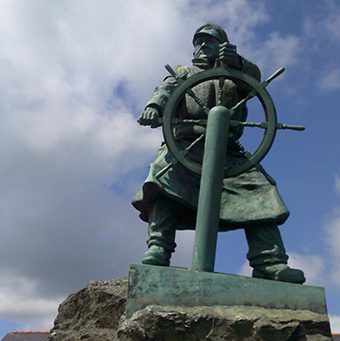The umbrella group the Security Commonwealth is holding a gathering of members next month, to talk of where the body can and should go next. Mark Rowe offers his opinion; the question to pose isn’t so much what issues or good causes the Commonwealth should champion, but what does the Commonwealth see itself as?
The Commonwealth has set out its ‘aims and objectives‘. Partly, it meets them – such as, to bring the UK’s security sector together – purely by existing. It has 40-plus bodies as members, some longer-standing and larger than others, some catering for specialisms, such as hotel, healthcare or university campus security; some like the Security Institute or ASIS UK in the main having individuals as paying members; some like the BSIA based on employers and representing businesses.
They’re so differing, it’s arguable whether it’s sensible to give the impression that they belong to one ‘security industry’. If anything, UK private security is even wider than the Commonwealth; where’s the representation of the night-time economy and door staff; and the front-line officer has arguably always been poorly represented or not at all, by anyone, an industry body or trade union.
Yet if the Commonwealth did not exist – as a group of groups, like JSIC which petered out in the mid-2000s – someone would feel the need to re-invent it. The name was well chosen; while we are most likely to think of the Commonwealth of nations formerly in the British Empire, the word (of Old English origin according to the dictionary) suggests a ‘common weal’, that no matter how different – the executive earning or aiming for six figures, the officer with ‘SECURITY’ on his back on London Living Wage who would consider changing jobs for another 50 pence an hour – those working in private security have something in common. If only informally, for moral reasons and not a legal requirement, the Commonwealth expresses a feeling of welfare and responsibility that those at work providing security services have for one another.
What then do the members of the Commonwealth – of those 40-plus, perhaps half attend a meeting, whether in-person or online – see themselves as, when around the table, actual or virtual? The Commonwealth runs the David Clark Award each year – in fact two awards, one for an individual, one a scheme or initiative, that contributes to the sector. It’s in memory of the late Commonwealth chair Dave Clark, and this year’s entries must be in by September 24.
The list of what the Commonwealth could do is formidably long: does it take up a cause, such as equality-diversity-inclusion (EDI), or higher pay for officers, or Martyn’s Law? Or violence and aggression against the front line, and the lamentable lack of action by the criminal justice system? Does it respond to stories in the mainstream media, to seek to correct bad publicity, besides give recognition to the award-winning? Like any group, it can only focus on a few things; and most of those in the Commonwealth are giving their time as volunteers. There are only so many hours in the day. As in any board room or 10 Downing Street cabinet, sheer inertia of a large number of people around a table can cause paralysis; any initiative can get shot down by someone.
What the Commonwealth sets out to achieve, then, depends on the skills and inclination of those around the table. The question is what those people see the Commonwealth as. Is it to take a stand, on EDI for instance, to add weight to an existing cause – except that any cause, for or against, except the most obvious (such as cruelty to donkeys) may be divisive. Or is the Commonwealth no more than (to use a 20th century metaphor) a telephone operator at an exchange, making connections at the switchboard, so that individuals and groups make contact, whether informally only, or to lead to something such as a memorandum of understanding, or a project that leads to a training package or a representation to government.
The Home Affairs Select Committee of MPs recently took evidence for its ‘pre-legislative scrutiny‘ of the Terrorism (Protection of Premises) Draft Bill, more commonly known as the Protect Duty or Martyn’s Law. The sole private security person invited was Shaun Kennedy, Chief Operating Officer for Central Europe at Securitas, representing the BSIA. It worked; private security’s view was ably put across. Yet private security cannot claim to be a profession without some generally agreed body, chartered (as achieved by information security some years ago, with their CIISec) or not, that anyone – research student, politician, archbishop, officer wanting career advice or with a grievance about his employer – can pick up the phone and get through to, and get a sensible answer.
Photo by Mark Rowe; statue, Moelfre, Anglesey.









